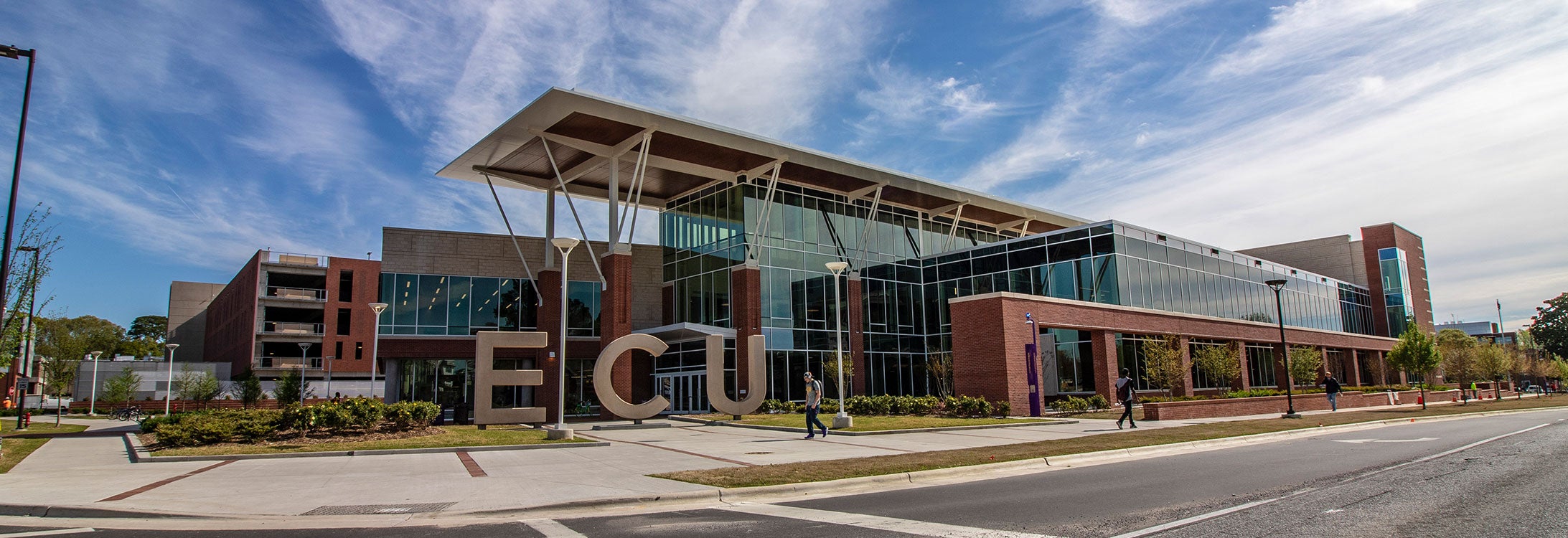ECU Biology Professor, Matt Schrenk, Ph.D., awarded $1.5 Million Alfred P. Sloan Foundation Grant
GREENVILLE, N.C. (Dec. 16, 2011) — Dr. Matthew O. Schrenk, assistant professor of biology at East Carolina University, received notification on Tuesday, Dec. 13, that he has been awarded a $1.5 million grant from the Alfred P. Sloan Foundation in New York City to develop the Deep Carbon Observatory’s Deep Life Directorate.
“I am very excited by the grant and the data it will yield in the next few years,” said Schrenk. “The Sloan Foundation/Deep Carbon Observatory provides a unique funding opportunity that facilitates international, collaborative research at a scale supportive of critical advances in Biogeoscience.”
Funding from the grant will allow for this large, interdisciplinary project that will include cooperation among 10 other universities and institutes.
“This is one of the biggest collaborative grants that I have seen come through for Arts and Sciences, particularly from a non-profit,” stated Melody Bentz, grants officer in the Thomas Harriot College of Arts and Sciences Office of Research.
“It is not often that you can conduct coordinated science across a range of projects and continents, but this grant facilitates just such an exercise,” said Schrenk. “Our team has expertise ranging from single cell genomics to high pressure materials science, and targets critical portals to the deep biosphere in the US, Canada, Finland, China and South Africa. Furthermore, the work relies upon carefully coordinated lab and field studies, which should contribute to a fuller picture of the microbiology of the deep subsurface.”
Based on his grant proposal, “Deep Life I: Microbial Carbon Transformations in Rock-Hosted Deep Subsurface Habitats,” Schrenk will work with 17 colleagues from seven countries, to collect and analyze data over a two-year period beginning January 2012.
“The main goal of the research is to fill in the ‘black box’ of the rock-hosted subsurface microbial biosphere, which may be the largest habitat on Earth, but also that with the least data,” said Schrenk.
According to Schrenk, the goal of the research will be accomplished by studying three types of field sites; deep fractures in continental rocks, groundwater wells in ophiolites (ancient ocean crust), and the study of newly discovered hydrothermal systems at the Mid Cayman Rise in the Caribbean.
Schrenk’s team of researchers will coordinate studies across these sites to assess how carbon is metabolized, assimilated and transformed as it passes from the deep Earth into the surface.
“The work has important implications for both basic and applied science and may provide useful information relevant to climate change, alternative energy strategies and the development of novel biotechnologies,” concluded Schrenk.
Schrenk received his Bachelor of Science degree in geology and geophysics from the University of Wisconsin-Madison in 1998, and his Master of Science and doctoral degrees in oceanography from the University of Washington in 2001 and 2005,respectively. He came to ECU in 2008, upon completion of a postdoctoral appointment in astrobiology at the Carnegie Institution for Science. Currently, Schrenk serves as an assistant professor of biology and as an adjunct professor of geological sciences in the Thomas Harriot College of Arts and Sciences at ECU.
